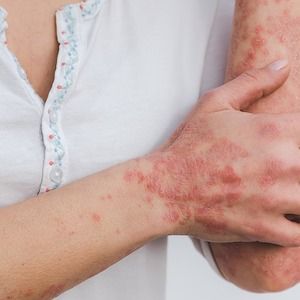Article
Brodalumab Ineffective in Alleviating Sleep Problems for Plaque Psoriasis Patients
Author(s):
New research suggests that certain interleukin-17 blockage therapies may not alleviate sleeping issues in patients with psoriasis.

For patients with plaque psoriasis, new research suggests the use of brodalumab treatment may not reduce sleep issues associated with the skin disease.
As a chronic inflammatory disease affecting almost 65 million patients around the world, psoriasis is also associated with reported sleep issues such as poor sleep quality. Due to such widespread issues with the condition, this analysis was conducted on the use of anti-interleukin-17RA monoclonal antibody known as brodalumab as a treatment for sleep problems.
The analysis was led by Yoko Mizutani of the Department of Dermatology at Gifu University Graduate School of Medicine.
“The SPI-II score and MOS Sleep-R sub- scale scores, except the Snoring score (p = 0.0319), did not significantly change from baseline to week 12 of brodalumab treatment,” Mizutani and colleagues wrote. “In conclusion, treatment with brodalumab did not improve overall sleep problems in real-life patients with plaque psoriasis, sug- gesting that sleep problems require attention in daily clinical practice.”
Background
The investigators’ analysis was part of the single-arm, open-label, multicenter, cohort study known as ProLOGUE. ProLOGUE assessed Japanese psoriasis patients from October 2017 to March 2020. The assessment included 73 patients, with about 82% being male and the median age being 54-years-old.
The investigators’ analysis included the “correlation of Medical Outcomes Study Sleep Scale–Revised (MOS Sleep-R) scores (Sleep Problems Index-II [SPI-II] and MOS Sleep-R subscale scores) with multiple patient-reported outcome scores and the Psoriasis Area and Severity Index (PASI) at baseline.”
They also assessed patients’ changes from baseline in MOS Sleep-R scores at the 12 week and and 48 week point during treatment with brodalumab.
Findings
The investigators found that at baseline, patients’ SPI-II scores did not correlate with the PASI scores. However, their SPI-II score did correlate with the Patient Health Questionnaire-8 score and also weakly correlated with the Skin Pain NRS, Itch Numeric Rating Scale, and all Treatment Satisfaction Questionnaire for Medication-9 domain scores (ρ = 0.303, ρ = 0.270, and ρ = 0.322 for convenience, effectiveness, and global satisfaction, respectively).
The investigators also noted that, from baseline up to 12 weeks of treatment with brodalumab, patient MOS Sleep-R subscale scores and SPI-II scores, with the exception of the Snoring score, did not feature changes.
“In this analysis of the ProLOGUE study, brodalumab treatment did not contribute to alleviating sleep problems assessed by the SPI-II scores,” they wrote. “Among the MOS Sleep-R subscale scores, only Snoring, which is not a component of SPI-II scoring, showed improvement from baseline to week 12 following brodalumab treatment.”
This study, “Treatment with brodalumab is not associated with improved sleep problems in real-life patients with plaque psoriasis: Results of the ProLOGUE study,” was published in the Journal of Dermatology.





